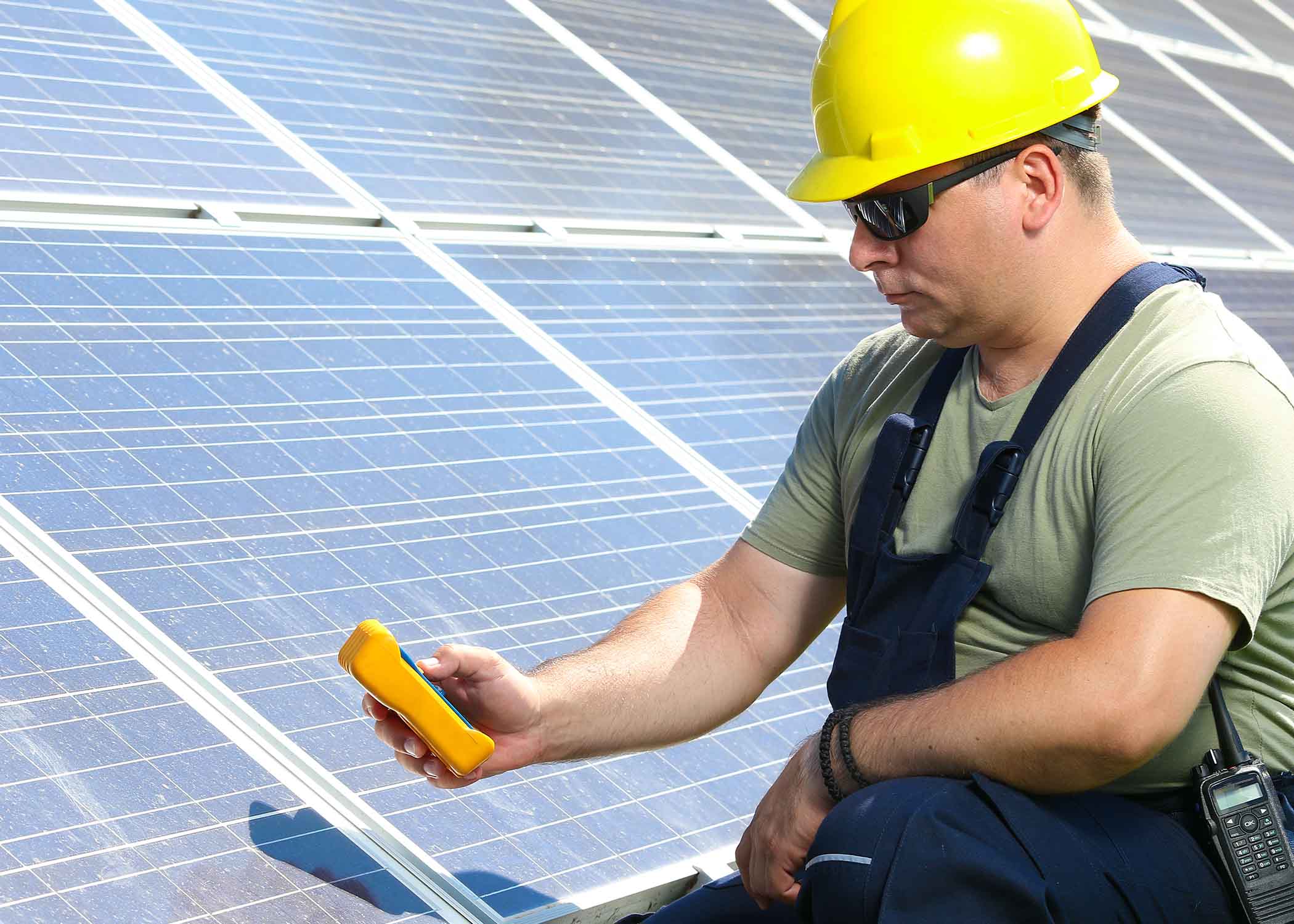There is much talk about how renewable energies are good for the planet.
But how exactly solar benefits the planet is still murky.
If you’re considering solar power, it helps to understand all the benefits.
The positive environmental impact of solar energy reaches further than reducing carbon dioxide emissions.
It also affects the air we breathe, Earth’s natural resources, water systems, and overall ecosystem health.
Let’s take a closer look.
Understanding the Environmental Impact of Solar Energy on Climate Change Mitigation
Global warming refers to changes in the average overall temperature, but the change doesn’t occur evenly.
The last seven years have been the hottest years on record.
Since the beginning of the Industrial Age, humans have sent more heat-trapping greenhouse gases into the atmosphere than at any time in our species’ history.
There is more CO2 now than there has been since the Mid-Pliocene Warm Period, which occurred more than 3 million years ago, and 2020 broke previous records in human history, with a recorded 412.5 parts per million.
CO2 is the most persistent GHG in the atmosphere, but methane is the most potent.
Natural gas is touted as a cleaner energy source than coal, but it is 80% methane, and some of that methane escapes during both the extraction and combustion process.
Perhaps the most important and most well-known environmental impact of solar energy is reducing greenhouse gas emissions.
Climate Change and Earth’s Temperatures
The poles are experiencing a higher rate of warming than the mid-latitudes.
Alaska’s average climbed more rapidly than any other state in the US over the past 50 years and twice as fast as the global rate.
Snowpack in the country’s largest and wildest state is decreasing.
Globally, nighttime temps are increasing faster than daytime temperatures.
Climate Change and Sea Level Rise
There are two ways that higher average temperatures cause our oceans to rise.
First, the warmer air leads to warmer ocean water, and when water heats up, the volume increases.
A larger volume means the ocean takes up more space, encroaching inland over low-lying areas.
Warmer temperatures also cause ice that sits over land to melt, ending up in the ocean.
Climate Change and Weather
As the planet warms up, we experience extreme weather conditions more frequently.
There are more intense droughts as well as heavier rains and flooding.
Record-breaking heat waves occur regularly, with some record-breaking cold snaps thrown in (yes, these happen, too!).
Season lengths can also change, leading to changes in growing cycles.
How Solar Energy Mitigates Climate Change
The environmental impact of solar energy helps reduce greenhouse gas emissions.
When you heat up and burn coal and natural gas to produce electricity, they emit greenhouse gases.
Though CO2 is the most abundant, emissions also include methane and nitrous oxide.
In 2019, electricity production contributed 25% of the US GHG emissions, second only to the transportation industry.
When you install solar panels on your home, you lower your footprint for carbon and other GHGs.
Solar energy production does not produce GHG emissions, so any time you are using solar-generated power, you help mitigate and slow the process of climate change.
When you pair your panels with battery storage, you may be able to eliminate your emissions from electricity.
Understanding the Ways Solar Reduces Air Pollution
Another environmental impact of solar energy is the reduction of air pollution.
Burning fossil fuels results in air pollutants that are harmful to the environment and human health.
Coal combustion leads to the production of particulates and chemical compounds, such as:
- Nitrogen oxides: NOx in the air causes air pollution, leading to respiratory illnesses and smog
- Sulfur dioxide: SO2 contributes to the formation of acid rain and causes respiratory illnesses
- Heavy metals, including mercury: These substances contribute to developmental and neurological damage in animals and people
The particulates burned coal emits causes respiratory illnesses, lung disease, haze, and smog.
Though burning natural gas is generally considered cleaner, it still produces NOx, particulate matter, SO2, and volatile organic compounds.
Air Pollution and the Environment
When pollutants circulate in the air, they can damage terrestrial and aquatic systems.
The toxins eventually are deposited on the ground and in water systems, often in the form of acid rain.
When acid rain falls on lakes and rivers, it increases their acidity levels.
SO2 also damages the leaves on trees and other plants, including crops.
Excess nitrogen in the atmosphere reduces plant biodiversity and harms the health of aquatic life.
When looking at the environmental impact of solar energy, it’s essential to consider whether it can reduce the amount of air pollution that harms ecosystems.
Air Pollution and Human Health
Air pollution negatively impacts the respiratory, cardiovascular, and nervous systems.
Coal and natural gas combustion emissions can harm every organ in the body and contribute to four out of the five primary diseases that are the leading causes of death in the US:
- Heart disease
- Lower respiratory diseases
- Cancer
- Stroke
Additionally, extracting natural gas through the process known as fracking produces toxic and harmful air pollutants, such as hydrocarbons (i.e., benzene, ethylbenzene, toluene, and xylene) and hydrogen sulfide.
These pollutants damage the central nervous system and are particularly harmful to those who work on fracking sites or live within close proximity.
Solar Energy and Air Pollution
The environmental impact of solar energy includes the fact that using solar panels does not cause air pollution.
The more solar arrays installed, the lower the air pollution from burning fossil fuels and extracting natural gas.
Cleaner air leads to healthier ecosystems, crops, and people.
The widespread use of solar could save as many as 25,000 lives.
It would also significantly reduce the cost of healthcare and the economic impacts of polluted ecosystems and damaged crops, saving the US as much as $252 billion.
Understanding the Environmental Impact of Solar Energy on Resource Conservation
Coal and natural gas are finite resources.
Organic materials such as plants, heat, and pressure combine to form coal and natural gas, but the process happens over a million or more years.
Earth will not replace the coal and natural gas we extract today any time soon.
Additionally, the fracking process uses a lot of water.
Fracking a single well can require as much as 9.7 million gallons of water, and thus far, the industry has drilled more than 1.7 million wells.
That’s a lot of water.
As with fracking, nuclear energy and hydropower require a tremendous amount of water to produce energy.
Solar Energy and Resource Conservation
Another significant positive environmental impact of solar energy is that it helps conserve natural resources.
Creating solar panels and the other components needed in a solar energy system requires raw materials, the most significant of which is the silica used in the solar panel cells.
However, solar panels use fewer natural resources than coal or natural gas.
The units also have a long life span, generally between 25 and 30 years.
When we burn coal or natural gas for electricity, we need to constantly extract more of those resources and use more water to keep producing electricity.
On the other hand, solar panels produce electricity using the sun’s power, a completely renewable energy source.
When installing solar for your home, you help conserve Earth’s natural resources, including water.
Understanding the Ways Solar Benefits the Water System
In addition to conserving freshwater and preventing the indirect water pollution that results from air pollution, another positive environmental impact of solar energy is that it reduces direct water pollution from coal and natural gas extraction and combustion.
When installing solar, you can feel good about protecting water sources from pollution.
Coal and Water
Coal mining, particularly strip mining and mountaintop removal, poses serious risks to water sources.
In both methods, mining companies remove layers of Earth to expose the coalbed for easier extraction.
The waste produced in the process is full of toxic heavy metals and is often dumped in waterways and on valley floors, contaminating streams and eventually leaching into groundwater systems.
Burning coal for energy produces an ash byproduct.
Power plants no longer spew ash into the air through smokestacks, yet it still poses a significant risk to water sources.
Coal-burning energy companies capture the ash and store it in underground containers or landfills.
The ash is acidic and contains toxic chemicals and heavy metals that may leach into the ground and contaminate water sources.
Several ash containments have also ruptured, causing pollution of nearby water sources.
You don’t see this environmental impact of solar energy on our water systems!
Natural Gas and Water
Not only does fracking use a lot of water, but it also produces around 3,400 billion liters of wastewater annually.
This water contains naturally occurring heavy metals, chemical compounds, and thousands of added chemicals used in the process.
The extraction companies typically store the wastewater in lined pits at the extraction site.
When the linings degrade or rupture for some other reason, the contaminated water seeps into the ground and may end up in groundwater systems.
Additionally, these pits are not covered.
A heavy rain event can cause the water to overflow the confines of the pit.
Solar and Water Pollution
Though the manufacturing process for solar requires water — a requirement for manufacture in general — installing rooftop solar on your home uses no water at all.
Using solar energy reduces the direct pollution of ground and surface water systems.
There is virtually no risk to these systems from residential rooftop solar.
Understanding the Environmental Impact of Solar Energy on Ecosystem Health
Perhaps the single most ecosystem destructive practice in using fossil fuels to generate electricity is coal mining.
Though underground mining poses the least environmental risk of the three standard coal extraction methods, strip mining and mountaintop removal can be devastating to ecosystems.
However, natural gas extraction still interrupts and damages ecosystems.
Coal and Ecosystems
Strip mining and mountaintop removal can cause irreparable harm to ecosystems.
These processes involve removing every component of an ecosystem to get at a coal deposit.
Though the government requires mining companies to “restore” these areas when the deposit is tapped out, it can take decades to return some semblance of a natural system.
These systems may not be the same as what existed previously.
In the case of mountaintop removal, there is no way to replace the top of the mountain, so those ecosystems are gone for good.
Natural Gas and Ecosystems
The infrastructure for natural gas often requires clearing large tracts of land, disrupting and fragmenting wildlife habitat.
A cumulative area of public lands equal to the size of six Yellowstone National Parks is currently in use for oil and gas extraction, removing wilderness, rangeland, and recreation land from public use.
Solar and Ecosystems
You can feel good knowing that the environmental impact of solar energy includes a reduction in ecosystem destruction.
Large-scale solar arrays may involve landscape alteration, depending on the quality of the land.
However, solar farms are often located on degraded land.
More companies are also finding out the benefits of co-locating solar farms and natural habitats, crops, or rangelands.
Residential rooftop solar does not alter the landscape at all.
Helping Increase the Positive Environmental Impact of Solar Energy
When you make any big decision, you want it to be something that you can feel good about.
We get it.
At Unbound Solar®, we want our customers to understand all the reasons why choosing solar is a good investment for your family and the planet.
The positive environmental impact of solar energy reaches into almost every aspect of environmental health.
When you choose solar, you are joining global efforts to make our planet a healthy place for all inhabitants, now and well into the future.
We’re happy to chat solar anytime, so if you have any questions about solar energy or our product, give us a shout!



